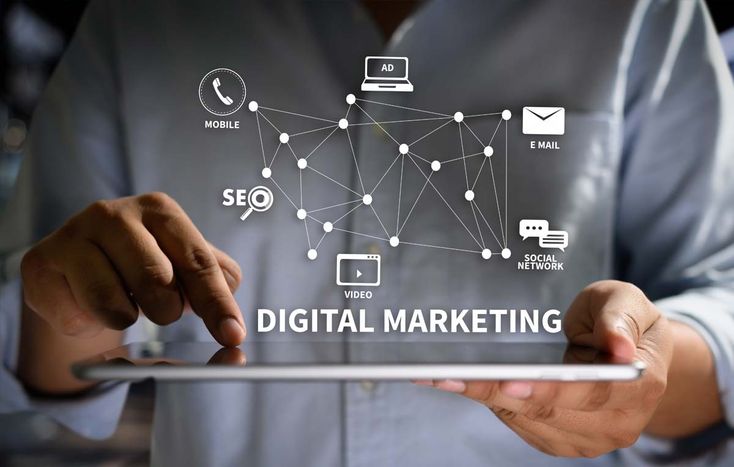- Blog
- 12 Nov, 2024

In today’s fast-paced digital world, businesses must adapt to changing consumer behavior and leverage online platforms to succeed. Digital marketing has emerged as a powerful tool to reach, engage, and convert audiences. This guide breaks down the fundamentals of digital marketing, helping you understand its importance and how to get started.
What Is Digital Marketing?
Digital marketing refers to promoting products, services, or brands through online channels such as search engines, social media, email, and websites. Unlike traditional marketing, digital marketing allows businesses to target specific audiences, track performance, and optimize campaigns in real time.
Why Is Digital Marketing Important?
- Wider Reach: Connect with a global audience 24/7.
- Cost-Effective: Digital channels often provide higher ROI compared to traditional methods.
- Measurable Results: Tools like Google Analytics enable you to track campaign performance and make data-driven decisions.
Key Components of Digital Marketing
- Search Engine Optimization (SEO)
- Optimize your website to rank higher in search engine results.
- Focus on keywords, quality content, and technical performance.
- Content Marketing
- Create valuable, relevant content to attract and retain audiences.
- Formats include blogs, videos, infographics, and eBooks.
- Social Media Marketing
- Engage with audiences on platforms like Facebook, Instagram, LinkedIn, and Twitter.
- Use organic posts and paid ads to build brand awareness.
- Email Marketing
- Communicate directly with potential and existing customers through email campaigns.
- Personalization and segmentation can boost engagement rates.
- Pay-Per-Click (PPC) Advertising
- Run paid ads on search engines and social platforms for immediate visibility.
- Platforms like Google Ads and Facebook Ads allow precise targeting.
- Affiliate Marketing
- Partner with affiliates who promote your products for a commission.
- Increases brand reach and drives sales through collaboration.
- Analytics and Performance Tracking
- Use tools like Google Analytics, SEMrush, or HubSpot to monitor campaign success.
- Identify areas for improvement and refine your strategies.
Steps to Get Started with Digital Marketing
- Define Your Goals
- Are you looking to increase website traffic, generate leads, or boost sales? Clear objectives guide your strategy.
- Know Your Audience
- Understand your target audience’s demographics, preferences, and online behavior.
- Choose the Right Channels
- Focus on platforms where your audience is most active.
- Develop a Content Strategy
- Plan and create engaging content that aligns with your goals.
- Set a Budget
- Allocate resources for tools, ads, and content creation.
- Test and Optimize
- Experiment with different strategies and adjust based on performance data.
Conclusion
Digital marketing is an ever-evolving field with immense potential for businesses of all sizes. By understanding the basics and staying updated on trends, you can build effective campaigns that drive growth and success. Start small, measure results, and scale your efforts to maximize your impact in the digital landscape.
